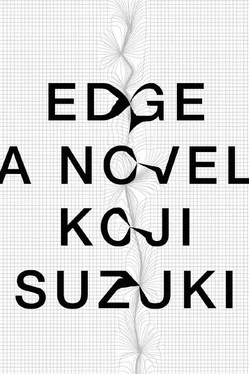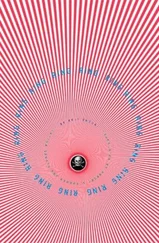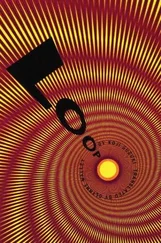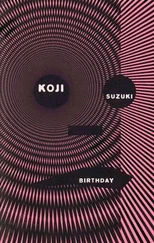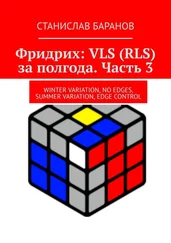Koji Suzuki - Edge
Здесь есть возможность читать онлайн «Koji Suzuki - Edge» весь текст электронной книги совершенно бесплатно (целиком полную версию без сокращений). В некоторых случаях можно слушать аудио, скачать через торрент в формате fb2 и присутствует краткое содержание. Город: New York, Год выпуска: 2012, ISBN: 2012, Издательство: Vertical, Жанр: Ужасы и Мистика, на английском языке. Описание произведения, (предисловие) а так же отзывы посетителей доступны на портале библиотеки ЛибКат.
- Название:Edge
- Автор:
- Издательство:Vertical
- Жанр:
- Год:2012
- Город:New York
- ISBN:978-1-935654-95-7
- Рейтинг книги:4 / 5. Голосов: 1
-
Избранное:Добавить в избранное
- Отзывы:
-
Ваша оценка:
- 80
- 1
- 2
- 3
- 4
- 5
Edge: краткое содержание, описание и аннотация
Предлагаем к чтению аннотацию, описание, краткое содержание или предисловие (зависит от того, что написал сам автор книги «Edge»). Если вы не нашли необходимую информацию о книге — напишите в комментариях, мы постараемся отыскать её.
Edge — читать онлайн бесплатно полную книгу (весь текст) целиком
Ниже представлен текст книги, разбитый по страницам. Система сохранения места последней прочитанной страницы, позволяет с удобством читать онлайн бесплатно книгу «Edge», без необходимости каждый раз заново искать на чём Вы остановились. Поставьте закладку, и сможете в любой момент перейти на страницу, на которой закончили чтение.
Интервал:
Закладка:
“Who are you?”
“No such man exists,” Seiji responded as though the statement concerned somebody else.
“You … don’t exist?”
During her preliminary research into the Fujimura family, Saeko had made sure to look up the family register. His name had been there, clear as mud. Seiji, the elder brother, born six years before Kota. At the time Saeko had noticed that the names were strange considering the order of birth; the “ji” in Seiji meant second , suggesting that he was the younger brother. But the register had shown it to be the other way around.
“What do you mean, you never existed?” she asked again, more forcefully.
“That punk had been a waster, always running from something. Never did anything of use. One time, thirty years ago, he ran away and never came back. The little punk’s been dead for over a quarter century. Died a dog’s death, alone and starving. Guess no one ever identified the body, probably sorted away as an unidentifiable, a John Doe.”
From what she knew of Seiji the description seemed at least to fit. But he was right here, in front of her. How was she supposed to parse that? Was she talking to a ghost?
“So tell me, what are you then?”
Saeko didn’t notice that her voice was shaking. No longer distracted by the TV set broadcasting the end of the world, she stared directly at the thing in front of her, eyes steady and focused. Seiji held up a hand as if to forestall her line of thought.
“Let’s see. So you think that the family made for a wormhole, that they made their escape, right? Well, that’s not exactly the case. One of them couldn’t go through the wormhole. Like a snake whose wings had been clipped, his power had been taken away. That’s right, the one who had made a pact with the Devil. That’s why he’d worked so hard at getting ready, so hard and for so long. He built a shitty little hut near the house here and made it look like that was where Seiji lived. He even piled up debts using the punk’s name. After he saw off the rest of the family, you see, he needed someone that he could become. Think about it: if he’d been the only one to stay behind, what do you think would have happened? The police would have dragged him through the dirt. The questions would hammer down like black rain. What did you do to your wife, your kids? He’d have no way to explain it. His only choice was to make it seem like the whole family vanished, him included. To do that, he had to assume the personality of another, a fiction that he’d fashioned. He lived as Seiji from that day forward.”
Seiji stopped suddenly and broke eye contact, giving Saeko some time to absorb the information.
Saeko’s mind was close to short-circuiting with a nasty zap. Sometimes the brain just went numb when faced with a fact that couldn’t be processed. She didn’t notice that she wasn’t breathing. A moment longer and her heart might have stopped as well.
She replayed Seiji’s words in her mind, again and again. Each time, she came to the same conclusion. “Please, no. Not you … You can’t be Dad,” she squeezed out.
Seiji’s eyes hung heavy, deflated in the middle of his wrinkled face. He blinked a couple of times, as though struggling to see out. His face, his body, the atmosphere around him, was the complete opposite of all her father was. Merely trying to overlap their faces in her mind threatened to shatter her precious memories of her father. Yet, everything was pointing to a single conclusion.
Her father had once told her:
Sae. When we look at something, we apply our own biases to the object observed. We influence the object itself. The moon is as the moon is because that is how we perceive the moon. Nothing exists in absolute isolation; nothing exists free from human perception .
Saeko’s first impressions of Seiji had been almost abnormally bad; she hadn’t been able to think of a single good thing to say about him. Everything about him had grated at her nerves, like nails on a chalkboard: his grimy clothes, the dirt-covered gloves wrapped around his neck, the look of open perversion in his eyes, the way he drank in her body lines with his stare, those horrible noises he made. Even the sound of his voice grated like it was designed to offend. The coarse and lewd way he spoke to her — just coming within thirty feet of the man was enough to set her on edge. If he tried to touch her she would instinctively pull away.
Her judgment had been clouded from the very beginning.
Saeko tried to clear her mind of all prejudice, all the preconceived ideas she had of the man. She had to look at him with her heart. She worked to steady her racing pulse.
There was an Escher drawing where a picture of a vase became one of two faces depending on the viewer’s focus. Saeko opened her eyes and experienced such a revelation.
In that moment, everything she saw turned on its head. Seiji’s wrinkled face became full and healthy, and hair flowed back over his balding head. His once-dead eyes brightened with a new intensity, his arched back straightened. The characteristics that defined Seiji were replaced by the warm familiarity of those of her father. Before her sat the same man that had once taken her on a day out to the cycling theme park in Izu and used the bikes to analyze the characteristics of the products of human artifice; the same man that had sat with her on the living room sofa and taught her about the structure of matter, about the fundamental physical structures of the world; the same man that had taken her fishing on summer days and brought her on trips around the world, excursions he had branded “research trips.”
Shinichiro’s eyes were brimming with merciful love. Slackening one side of his mouth as was his habit, he said, “Sae, it’s been a while. How have you been?”
Saeko broke into tears, collapsed forward onto the table before her, and sobbed openly. Every happy moment she had ever spent with her father rushed before her eyes, finally allowing her emotions a release. She cried until the tears finally ran out. Then, praying that the image she had just seen of her father was back for good, she looked up.
But the face that looked back was Seiji’s. No matter how she tried to focus, the image of her father did not return. Yet, a look of calm had descended over the face that Saeko had found so revolting.
Her father hadn’t just endured separation with Saeko. In January, he forever parted with his wife and children, his family of eighteen years. Two times he had been torn away from those he loved.
Saeko stood and walked slowly over to where Seiji sat. This was what was left of her father after he’d fallen all the way. He’d been punished for his decision to choose the future of one life over the future of all life. But now, Saeko could see clearly that no matter how he had changed, her father was still her father. There was no way she could abandon him when the world was about to end.
Taking care not to knock the crutches from his lap, Saeko leant forward, putting her arms around him. She hardly registered the terrible smell, the roughness of his skin.
“Dad, let’s go together,” Saeko whispered into his ear, ignoring the clumps of hair that sprouted out.
“Go by yourself. The wormhole opens ten or so kilometers south of here. There’s no time.”
Saeko already knew that there was a place just south of the Fujimura residence that exhibited strange physical conditions. Twelve kilometers south down the Akiha Road — Route 152—there was a mountain pass where the magnetic field was zero. It was well-known nationwide, and two of the cases of disappearances they had looked into for the program had occurred there.
Sae, remember that numbers don’t form a straight line with no gaps. The number line has holes everywhere, it’s full of them. The holes are made of the irrational numbers — the noisy, boisterous ones. The ones that continue in endless lines of random decimals. Then there’s zero. Zero is the abyss, an endless black hole .
Читать дальшеИнтервал:
Закладка:
Похожие книги на «Edge»
Представляем Вашему вниманию похожие книги на «Edge» списком для выбора. Мы отобрали схожую по названию и смыслу литературу в надежде предоставить читателям больше вариантов отыскать новые, интересные, ещё непрочитанные произведения.
Обсуждение, отзывы о книге «Edge» и просто собственные мнения читателей. Оставьте ваши комментарии, напишите, что Вы думаете о произведении, его смысле или главных героях. Укажите что конкретно понравилось, а что нет, и почему Вы так считаете.
